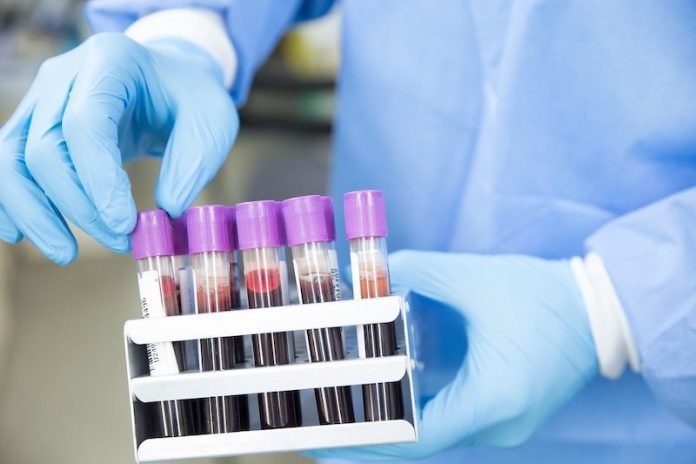
Scientists from the Brain Chemistry Labs discovered a unique ratio of metabolites from blood samples of early-stage Alzheimer’s patients.
This method promises to speed diagnosis, allowing earlier treatments to be started.
The research is published in PLOS ONE and was conducted by Dr. Sandra Banack et al.
Although symptoms of advanced Alzheimer’s disease are well known, diagnosis of Alzheimer’s disease in its earliest stages requires careful cognitive testing by neurologists.
In the study, the team found that the ratio of two molecules, 2-aminoethyl dihydrogen phosphate and taurine, allows them to reliably discriminate samples of early-stage Alzheimer’s patients from healthy people.
The blood samples were drawn from patients enrolled in an FDA-approved Phase II trial at Dartmouth Hitchcock Medical Center in New Hampshire and then shipped to the Brain Chemistry Labs for analysis.
Current attempts to diagnose Alzheimer’s disease from blood samples depend on the presence of amyloid fragments, the molecules that cause brain tangles and plaques.
The team says that they consider amyloid plaques to be a consequence rather than the cause of Alzheimer’s disease.
What is exciting about this new discovery is that it does not depend on amyloid and the assay can be performed on analytical equipment that is already present in most large hospitals.
If you care about Alzheimer’s disease, please read studies about a new method to treat Alzheimer’s disease, and brain damage is stronger in COVID-19 than in Alzheimer’s disease.
For more information about brain health, please see recent studies about how anxiety and PTSD can strongly change your brain, and results showing this stuff in cannabis may protect aging brain, treat Alzheimer’s.
Copyright © 2022 Knowridge Science Report. All rights reserved.



